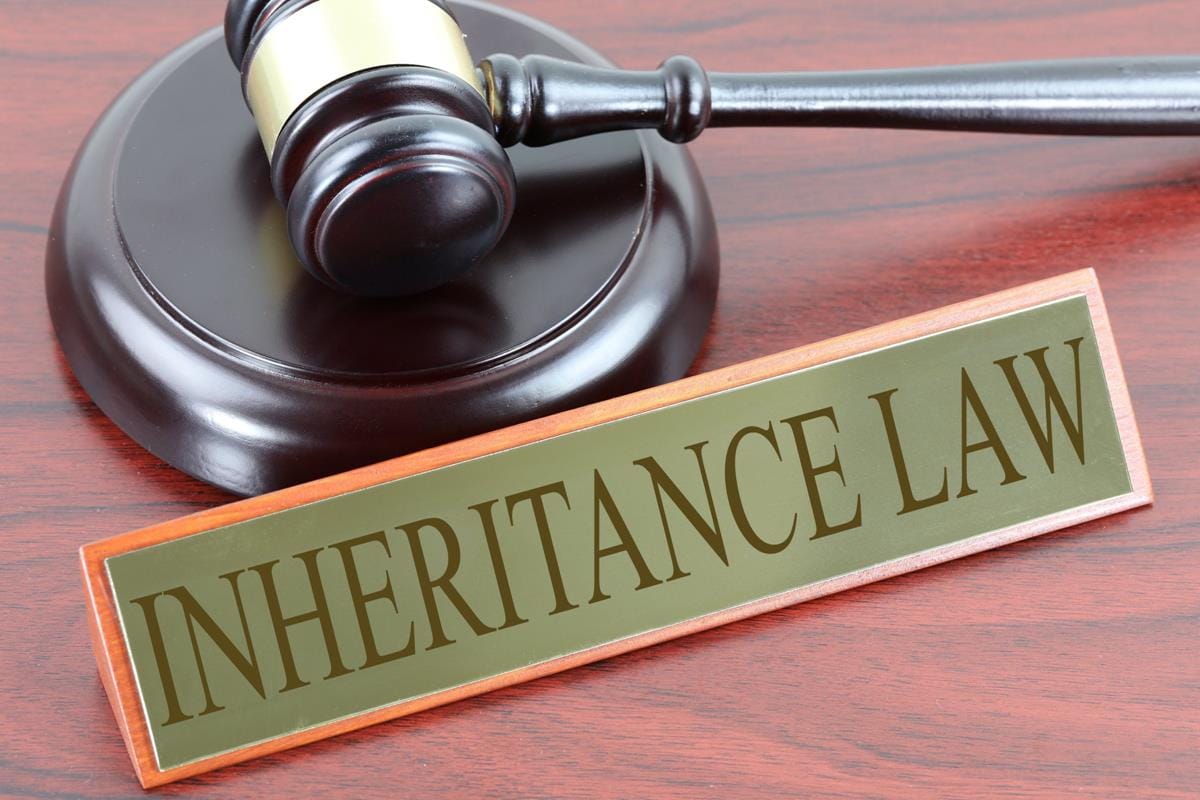
- Can You Own Property in Israel? Understanding Land Ownership for Foreigners
- What Are Land and Property Laws in Israel for Foreigners?
- Navigating the Complexities of Land Ownership as a Foreigner
- Tax Considerations for Foreign Buyers in Israel
- Registration and Documentation for Real Estate Purchases
- Key Legal Considerations When Buying Property in Israel
- Common Mistakes Foreigners Make When Buying Property in Israel
- How to Simplify the Property Buying Process in Israel
- Steps to Make the Buying Process Easier for Foreigners
- Step 1: Conduct Initial Research on the Property Market
- Step 2: Engage an Experienced Israeli Lawyer Early On
- Step 3: Arrange Your Finances and Understand Taxes
- Step 4: Property Visits and Inspections
- Step 5: Conducting Due Diligence
- Step 6: Negotiating the Purchase Price and Contract Terms
- Step 7: Signing and Completing the Purchase
- Step 8: Registering the Property with the Israel Land Authority
- Steps to Make the Buying Process Easier for Foreigners
- Common Pitfalls and How to Avoid Them
- Why Choose a Lawyer Based in Israel to Assist You?
- Final Thoughts: The Benefits of Investing in Israeli Real Estate
Can You Own Property in Israel? Understanding Land Ownership for Foreigners
Owning Property in Israel: Is It Possible?
Many people wonder, “Can you own property in Israel as a foreigner?” The answer might surprise you—it is indeed possible! Land ownership in Israel for foreigners is governed by the Israel Land Law of 1969. This law provides pathways for non-Israelis to purchase real estate, making it an attractive opportunity for foreign investors. In fact, investing in real estate in Israel can be a great decision, considering how much the market has grown over the last decade and how property prices have risen consistently.
A Growing Market with Opportunities
The real estate market in Israel has been on an upward trajectory for the past ten years. Prices have steadily increased due to various factors such as economic growth, limited land availability, and high demand for properties, particularly in major cities like Tel Aviv, Jerusalem, and Haifa. Despite the complexities of buying land in a foreign country, the opportunity to invest in this growing market remains attractive for many.
However, buying property in Israel comes with specific challenges—bureaucratic hurdles, legal requirements, and tax implications—that must be navigated carefully. Let’s explore the details, legal processes, and tips to help you easily buy land in Israel as a foreigner.
What Are Land and Property Laws in Israel for Foreigners?

The Basics of Land Ownership in Israel
The concept of land ownership in Israel is unique compared to many other countries. About 93% of the land in Israel is owned by the state, meaning most properties are leasehold rather than freehold. This means you do not own the land outright but lease it for a long-term period, often up to 49 or 98 years, from the Israel Land Authority (ILA).
Foreigners can acquire residential property in Israel, but it’s essential to understand the leasehold system and the specific legal nuances. The government’s control over land ensures fair distribution and management, which can be a new concept for investors used to outright ownership.
Leasehold vs. Freehold Properties
In Israel, there is a distinction between leasehold and freehold properties:
- Leasehold Property: Most properties fall under leasehold, which means the state remains the landowner while you have the right to lease and develop the land for a set number of years. Renewals are usually automatic, and you have rights similar to owning freehold land.
- Freehold Property: Freehold properties are rare, but they do exist. Purchasing freehold property gives you outright ownership of the land. This type of property is generally found in specific areas, such as parts of Jerusalem and some private lands.
Navigating the Complexities of Land Ownership as a Foreigner
Legal Challenges When Buying Property in Israel
Buying property in Israel is possible for foreign residents, but several legal and bureaucratic challenges must be addressed. One of the main complexities involves Israel’s legal landscape. For example, purchasing a property in Israel requires dealing with paperwork that is typically written in Hebrew. Without professional assistance, navigating these legal documents can be challenging.
There are also specific logistical and technical issues to consider. For instance, if you plan to visit Israel only once a year or may not be able to visit frequently, some steps in the property acquisition process could become challenging, such as physically signing documents or conducting inspections.
Bureaucratic Hurdles: Bank Accounts and Documentation
One challenge for foreigners buying property in Israel is dealing with banking regulations. For instance, not having an Israeli bank account can complicate the process. Additionally, transferring money to Israel for the property transaction involves dealing with local banking rules, which require clear documentation and compliance with anti-money laundering regulations.
Tips to Overcome Banking Issues:
- Open an Israeli Bank Account Early: Having an Israeli bank account can simplify the process. It’s advisable to open an account early in the acquisition process.
- Work with a Lawyer: Engaging an experienced Israeli lawyer is essential for ensuring all banking and financial aspects comply with local laws and run smoothly.
Tax Considerations for Foreign Buyers in Israel
Taxes in Israel Are Different for Citizens and Foreigners
Taxes are a significant consideration when buying property in Israel as a foreigner. Tax legislation regarding land in Israel varies depending on whether you are an Israeli citizen or a foreign resident. Foreigners are generally subject to a different tax structure, which is crucial to understand before making a purchase.
Purchase Tax (Mas Rechisha)
One of the primary taxes applicable when buying property in Israel is the Purchase Tax (Mas Rechisha). For Israeli citizens purchasing their first property, this tax is relatively low, sometimes even exempt for lower-priced properties. However, for foreign buyers, the Purchase Tax is higher:
- Foreign Residents: For foreigners, the Purchase Tax is levied similarly to that for an Israeli citizen who already owns multiple properties. Typically, it ranges between 8% and 10% of the property value, depending on the cost of the property.
Tip: Consult an experienced real estate lawyer who can help you understand the nuances of purchase taxes and guide you on any exemptions or discounts you may be eligible for.
Mortgage and Financing Challenges for Foreign Buyers
Is It Possible to Get a Mortgage as a Foreigner?
Yes, it is possible for foreign residents to obtain a mortgage in Israel, but it can be challenging. Israeli banks tend to be cautious when dealing with non-citizens:
- Lower Loan Amounts: Banks are typically more conservative in lending to foreigners, which may mean offering lower loan amounts compared to what they offer Israeli citizens.
- Extended Approval Process: The mortgage approval process for foreign buyers can take longer, as banks require more detailed documentation to verify the buyer’s ability to repay the loan.
Tips for Foreign Buyers Seeking Mortgages:
- Work with Israeli Banks Familiar with Foreign Clients: Some banks have departments that specifically cater to foreign clients, making the process smoother.
- Prepare Thorough Documentation: Be ready to provide proof of income, tax returns, and other financial documents. The more transparent and organized you are, the better your chances of approval.
Registration and Documentation for Real Estate Purchases
Property Registration with the Israel Land Authority
After purchasing a property, it is essential to register it with the Israel Land Authority (ILA). Every piece of land must be recorded with the ILA, which ensures transparency and clear ownership rights. However, registering property in Israel involves some specific steps:
- Documents Must Be in Hebrew: All official documentation, including the registration forms, must be submitted in Hebrew. It is advisable to have these documents reviewed and processed by a professional, such as an Israeli lawyer, to ensure that everything is correctly completed.
- Power of Attorney: If you cannot be present in Israel for registration, a lawyer can act on your behalf through a Power of Attorney. This document will allow your lawyer to handle the entire registration process without requiring your physical presence in Israel.
Tip: Ensure you engage a lawyer experienced in handling property transactions for foreign clients. This will help you navigate language barriers and avoid potential legal issues during registration.
Key Legal Considerations When Buying Property in Israel
Importance of Hiring an Israeli Real Estate Lawyer
Navigating the complexities of Israeli property law requires legal expertise. An experienced Israeli real estate lawyer can:
- Review Legal Documentation: The documents associated with property transactions in Israel, such as contracts, titles, and registration papers, are detailed and written in Hebrew. Your lawyer will help ensure that you fully understand all legal requirements and that your rights are protected.
- Conduct Due Diligence: Before purchasing, it is crucial to conduct due diligence on the property to identify any potential legal issues, such as outstanding liens or disputes. Your lawyer will perform thorough checks to ensure that the property is free from any encumbrances.
- Guide You Through Bureaucratic Procedures: Your lawyer will also assist with dealing with Israeli authorities, banks, and other institutions that play a role in the real estate transaction process.
Tip: Always work with a lawyer who has experience dealing with foreign buyers. They will be familiar with the unique challenges you face and can guide you effectively through each step.
Common Mistakes Foreigners Make When Buying Property in Israel
Not Understanding Land Lease Agreements
One of the most common mistakes foreign buyers make is not fully understanding the leasehold agreement. Since most land in Israel is leased from the state, not fully understanding the lease terms can lead to misunderstandings and unexpected restrictions.
Tip: Carefully review all leasehold terms and conditions with your lawyer to understand your rights and obligations fully.
Underestimating Zoning Regulations
Israel has strict zoning laws that determine how a property can be used—whether it can be used for residential, commercial, or agricultural purposes. Not verifying zoning regulations can lead to serious legal issues if the intended property use does not comply with local laws.
Tip: Always verify zoning regulations with a professional to ensure that your intended use of the property is permissible.
Overlooking Tax Obligations
Many foreign buyers overlook the tax obligations involved in purchasing property in Israel. This oversight can lead to unexpected financial burdens, such as Purchase Tax or Capital Gains Tax upon the resale of the property.
Tip: Make sure to plan for all tax liabilities before purchasing, and consult a tax advisor experienced in Israeli real estate.
How to Simplify the Property Buying Process in Israel
Steps to Make the Buying Process Easier for Foreigners
Buying property in Israel as a foreigner can be simplified by taking a systematic approach and following the necessary steps. With careful preparation and the right assistance, you can make the process as efficient as possible.
Step 1: Conduct Initial Research on the Property Market
Understanding Market Trends
Begin by researching the current trends in the Israeli property market. Familiarize yourself with average property prices in different regions, such as Tel Aviv, Jerusalem, Haifa, and other cities that interest you. The Israeli real estate market varies significantly depending on the location, with coastal cities often being more expensive.
Choose the Type of Property
Decide what type of property fits your investment goals—whether it’s a residential apartment, a villa, a commercial property, or agricultural land. Each type has its own benefits and limitations, and understanding these will help you determine which investment best suits your needs.
Understand Leasehold vs. Freehold
As mentioned, most land in Israel is leased from the government through the Israel Land Authority. Understanding whether the property you’re interested in is leasehold or freehold is essential, as it will determine your rights as the property holder.
Identify Potential Challenges
Each property may have unique challenges, such as zoning issues, existing leases, or infrastructure considerations. Identifying these potential issues early in your research helps in setting realistic expectations for your investment.
Step 2: Engage an Experienced Israeli Lawyer Early On
The most critical step in simplifying the property purchase process is engaging an experienced Israeli real estate lawyer who understands the needs of foreign buyers.
Why You Need an Israeli Lawyer
An Israeli lawyer will not only assist with the legal requirements but also guide you through every step—from negotiations to the final registration of the property. They ensure all transactions are compliant with Israeli law, reducing the risk of complications.
How to Choose the Right Lawyer
When choosing a lawyer, look for someone experienced in handling cases for foreign buyers. They should be fluent in English, have extensive knowledge of Israeli property law, and ideally, have experience working with clients from your country.
Step 3: Arrange Your Finances and Understand Taxes
Open an Israeli Bank Account
As discussed earlier, it’s a good idea to open a bank account in Israel early in the process. Many transactions, such as deposit payments and final settlement, will need to be conducted in Israel’s currency, and having a local account will make these transactions simpler.
Understand Taxation for Foreign Buyers
- Purchase Tax: For foreigners, Purchase Tax is typically 8-10%. Knowing how much you need to budget for this will help prevent surprises.
- Capital Gains Tax: When selling the property, foreigners may also be subject to Capital Gains Tax (Mas Shevach), which applies to the profit made from the sale.
- Municipal Property Taxes (Arnona): Ongoing property taxes vary depending on the location and size of the property. Make sure to understand these costs for budgeting purposes.
Consider Financing Options
Foreign buyers may face challenges in securing a mortgage in Israel. However, some banks provide loans to foreigners. An Israeli mortgage broker can help find the best deal for you, although you might be expected to provide a higher down payment compared to Israeli citizens.
Tips for Mortgage Financing:
- Down Payment Requirements: Expect to pay around 40-50% as a down payment.
- Provide Comprehensive Documentation: Israeli banks require proof of income, bank statements, and other financial documents. Make sure these are organized in advance.
Step 4: Property Visits and Inspections
Schedule a Visit to Israel
If possible, plan a trip to Israel to visit properties in person. This helps you get a realistic sense of the neighborhood, the amenities, and the general condition of the property. If visiting is not feasible, consider hiring a trusted agent or having a lawyer conduct a virtual tour for you.
Property Inspections
Conduct a thorough inspection of the property to ensure there are no hidden defects or problems that could affect its value. This includes checking the structural condition, utilities, and compliance with local building regulations.
Work with Local Real Estate Agents
UM local real estate agent who has experience with foreign buyers can assist you in finding suitable properties. They have a deep understanding of the market, including neighborhoods, property values, and potential risks.
Step 5: Conducting Due Diligence
Legal Due Diligence
Your lawyer will help conduct thorough due diligence on the property. This involves verifying that the seller has the legal right to sell, that there are no outstanding mortgages or liens, and that the property is registered correctly.
Title Search and Verification
Ensuring the title is clear is essential for avoiding future legal problems. The title search will verify the property’s ownership history and ensure there are no unresolved claims or disputes.
Step 6: Negotiating the Purchase Price and Contract Terms
Negotiation Tips for Foreign Buyers
Negotiating the price of a property in Israel can be tricky, especially if you are unfamiliar with local customs. An experienced real estate agent and lawyer can help you understand current market prices, guide you on how much to offer, and negotiate terms on your behalf.
Reviewing the Contract
Once an agreement is reached, your lawyer will review the contract to make sure it complies with Israeli property law. The contract will include terms such as payment schedule, contingencies, deadlines, and specific conditions that protect your interests.
Step 7: Signing and Completing the Purchase
Signing the Contract
The sales contract must be signed by both the buyer and seller. If you cannot be present in Israel, your lawyer can represent you through a Power of Attorney.
Final Payment and Registration
After signing the contract, you must complete the payment process, which includes paying the purchase price and any applicable taxes and fees. Your lawyer will handle the registration with the Israel Land Authority to ensure your ownership is officially recognized.
Step 8: Registering the Property with the Israel Land Authority
Registration Process
Once the property is purchased, it must be registered with the Israel Land Authority (ILA). This official registration confirms that the property legally belongs to you.
Title Registration and Verification
This stage involves verifying that all ownership transfers have been accurately recorded, and that there are no outstanding encumbrances. Registering with the ILA finalizes your ownership rights, making it legally recognized in Israel.
Common Pitfalls and How to Avoid Them
1. Failing to Understand the Leasehold System in Israel
Most properties in Israel are leasehold, which means you do not own the land outright but lease it from the state. Failing to understand the difference between leasehold and freehold ownership can lead to confusion and potential legal issues.
Avoiding This Pitfall: Ensure you fully understand the terms of the lease and how it affects your ownership rights. Consult your lawyer to explain these terms in detail.
2. Underestimating Tax Liabilities in Israel
Many foreign buyers underestimate the cost of Purchase Tax, Capital Gains Tax, and Municipal Property Taxes (Arnona). Miscalculating these expenses can lead to significant financial issues down the road.
Avoiding This Pitfall: Work with an experienced tax advisor who can help you understand all tax liabilities associated with buying, owning, and eventually selling property in Israel.
3. Not Conducting Thorough Due Diligence
Skipping due diligence or failing to perform it thoroughly can expose you to numerous risks, including unresolved disputes, unpaid property taxes, or restrictions that could prevent you from using the property as intended.
Avoiding This Pitfall: Conduct comprehensive due diligence with the help of your lawyer. Verify that the property is free from encumbrances, legal disputes, and complies with zoning regulations.
4. Overlooking Zoning and Building Regulations in Israel
Zoning regulations in Israel determine whether a property can be used for residential, commercial, or agricultural purposes. Not verifying zoning restrictions before purchase can lead to difficulties in using the property.
Avoiding This Pitfall: Always confirm the zoning status of the property before finalizing your purchase. Your lawyer can help determine whether your intended use complies with local laws.
5. Not Engaging Professional Help
Many foreigners attempt to navigate the buying process alone, which can lead to missed deadlines, improperly filed documents, or even financial losses.
Avoiding This Pitfall: Engage an experienced Israeli real estate lawyer and work with trusted real estate agents. Their expertise will help you avoid costly mistakes and ensure that the entire process runs smoothly.
Why Choose a Lawyer Based in Israel to Assist You?
Local Expertise and Understanding of Israeli Law
An Israeli lawyer understands the complexities of local property law, including how leasehold and freehold properties differ. They are also familiar with the legal processes and know how to navigate local bureaucracy efficiently.
Language Barriers
All official documentation is in hebraico, and it is crucial that these documents are thoroughly reviewed. An Israeli lawyer can interpret these documents, ensuring that everything is accurately translated and that there are no hidden clauses or issues that could impact you.
Handling Bureaucracy and Paperwork
The process of buying property involves a lot of paperwork, including title deeds, bank documents, and registration papers. Your lawyer will ensure that all necessary documents are completed and filed correctly, allowing you to focus on other aspects of your investment.
Final Thoughts: The Benefits of Investing in Israeli Real Estate
Investing in real estate in Israel can be incredibly rewarding, especially given the market’s growth over the last decade. However, it is essential to be aware of the challenges that come with purchasing property in a foreign country. From understanding the leasehold system to navigating taxes and legal paperwork, the process can seem overwhelming.

By working with an experienced Israeli lawyer and preparing in advance, you can overcome these challenges and take advantage of the numerous opportunities available in the Israeli property market. Whether you are looking to purchase a second home, invest in rental properties, or connect with your roots, buying land in Israel can be a sound and worthwhile investment.
How to Get Started
If you’re considering buying property in Israel, the first step is to do your research, set a budget, and engage professionals who can guide you through the process. This includes an experienced Israeli real estate lawyer, a local real estate agent, and possibly a mortgage broker who understands the needs of foreign investors.
Take the Next Step
Buying land in Israel as a foreigner is a significant decision, but with careful planning, the right advice, and professional support, it can be an achievable and profitable venture. Contacting Menora Law for a consultation is a great first step toward successfully navigating the process of buying property in Israel.
Contact Menora Law Today
If you’re ready to explore your options for purchasing property in Israel, contact Menora Law. We provide expert guidance for foreign investors, ensuring your real estate transaction is legally secure and efficient. Let us help make your dream of owning property in Israel a reality.


